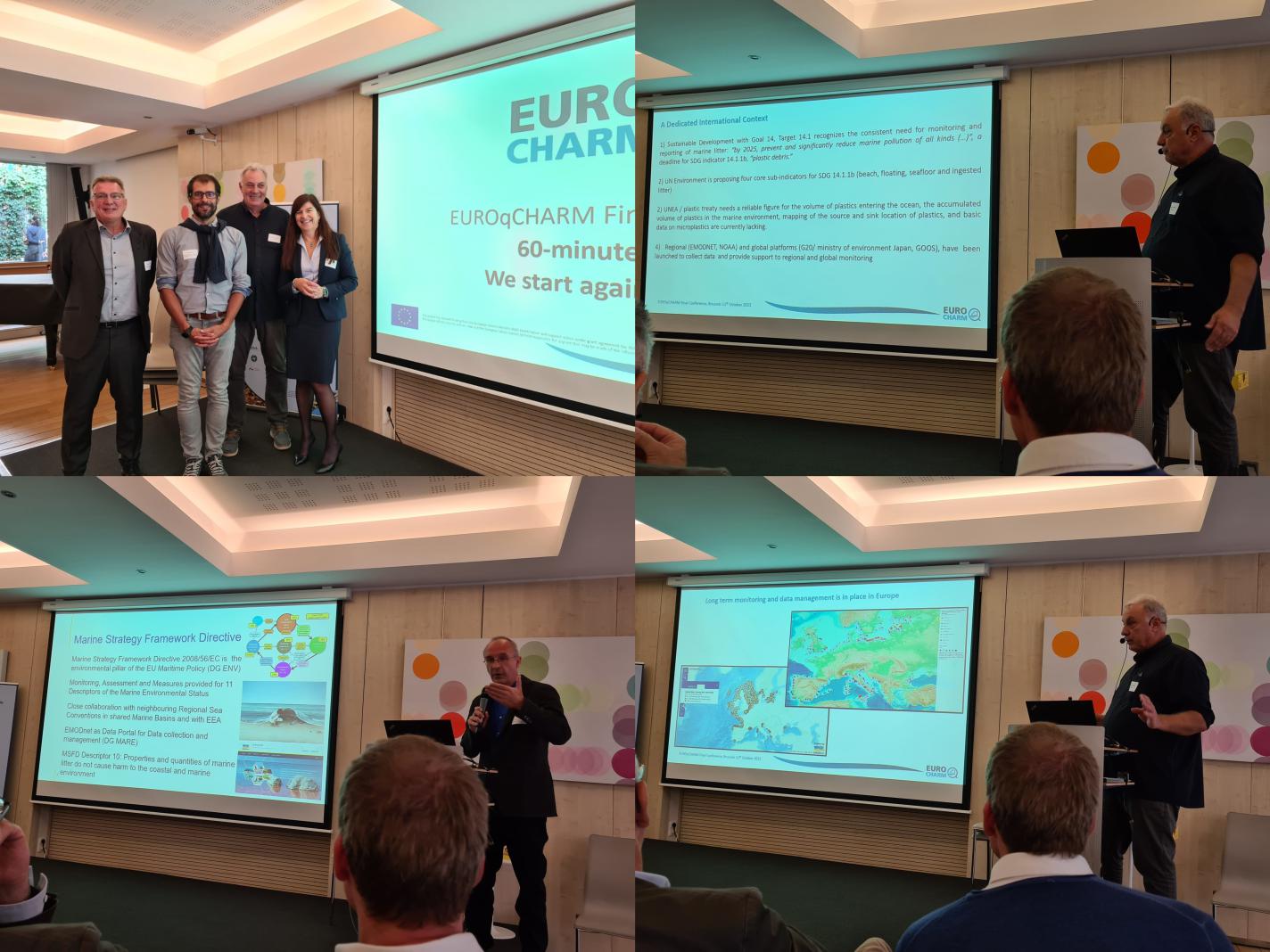EMODnet Chemistry at EUROqCHARM final conference

EMODnet Chemistry, as partner of the EUROqCHARM project, brought its experience as a marine litter data manager and data access infrastructure to the final conference of EUROqCHARM, held in Brussels on 11-12 October this year. Launched in November 2020, the project is a Coordination and Support Action funded by EU Horizon 2020, the EU's 2014-2020 programme for research and innovation.
View the EMODnet Chemistry presentation
EUROqCHARM and its critical review of measurement methods for plastics aims to evaluate and propose harmonised methods for monitoring and assessment of plastics and to develop standards and recommendations for policy and legislation at EU level and possibly beyond. The EUROqCHARM consortium achieved these objectives through a multi-stakeholder approach that brought together 15 relevant stakeholders involved in the study and monitoring of plastic pollution in Europe. The final conference had the difficult task of summarising and highlighting the outcomes of three years of intensive work, ensuring the resulting impact and looking to the future.
Check the program
The event was attended by 80 participants and 26 speakers. The latter were mainly from Europe: scientists and data experts from research institutes and national environmental monitoring bodies, but also citizen scientists from international non-profit organisations, entrepreneurs and members of the European Commission. Also present were representatives from the United Nations Environment Programme (UNEP), the Ministry of the Environment, Japan (MOEJ), and the NOAA Marine Debris Program.
Check the speaker bios
Efforts focused on improving knowledge of plastic pollution monitoring methods, mainly by critically revising methods through reproducible analytical pipelines, assessing their technological readiness and conducting SWOT analyses and laboratory intercalibration studies as well as supporting laboratory capacity building. All these project results have been actively shared with stakeholders in the EU and worldwide through dedicated webinars and meetings, as well as the EUROqCHARM Zenodo Open Repository Community. In this way, the project contributes to the creation of national, EU-wide and global monitoring standards that will be applicable for future plastic pollution mitigation actions. In addition, one of the benefits of the recommended harmonised methods will improve the capacity to acquire relevant and standardised or harmonised knowledge on plastics in the global environment and the impacts on all matrices that can be efficiently compared.
It has been a challenge and a pleasure to be involved as a marine litter data manager in such a bold and ambitious initiative as EUROqCHARM. The critical revision of plastic pollution measurement methodologies at EU level and beyond was necessary and, to my knowledge, has never been done as comprehensively as in this project. From a data management perspective, it was an enriching experience to be in direct contact with high-level laboratory experts who took the trouble to review and highlight the best and most sustainable practises for the most comprehensive and harmonised monitoring of plastic pollution in different matrices. The results of EUROqCHARM, shared with the EU Technical Group on Marine Litter and global experts, could be a real “game changer” in the years to come. As has been pointed out several times, while data management can provide a harmonised common framework for data reporting, it cannot alone address the imbalance or heterogeneity due to non-comparable monitoring methods.
It is always a great satisfaction when marine litter experts show EMODnet Chemistry's crucial role in tackling marine pollution. Georg Hanke from EC Joint Research Centre confirmed once again EMODnet as the Data Portal for Data collection and management under the Marine Strategy Framework Directive. François Galgani from Ifremer, also presented EMODnet as the long-term initiative for data management in Europe; the data platform launched by the European Commission in 2009 to collect data and support monitoring of EU sea and ocean.
